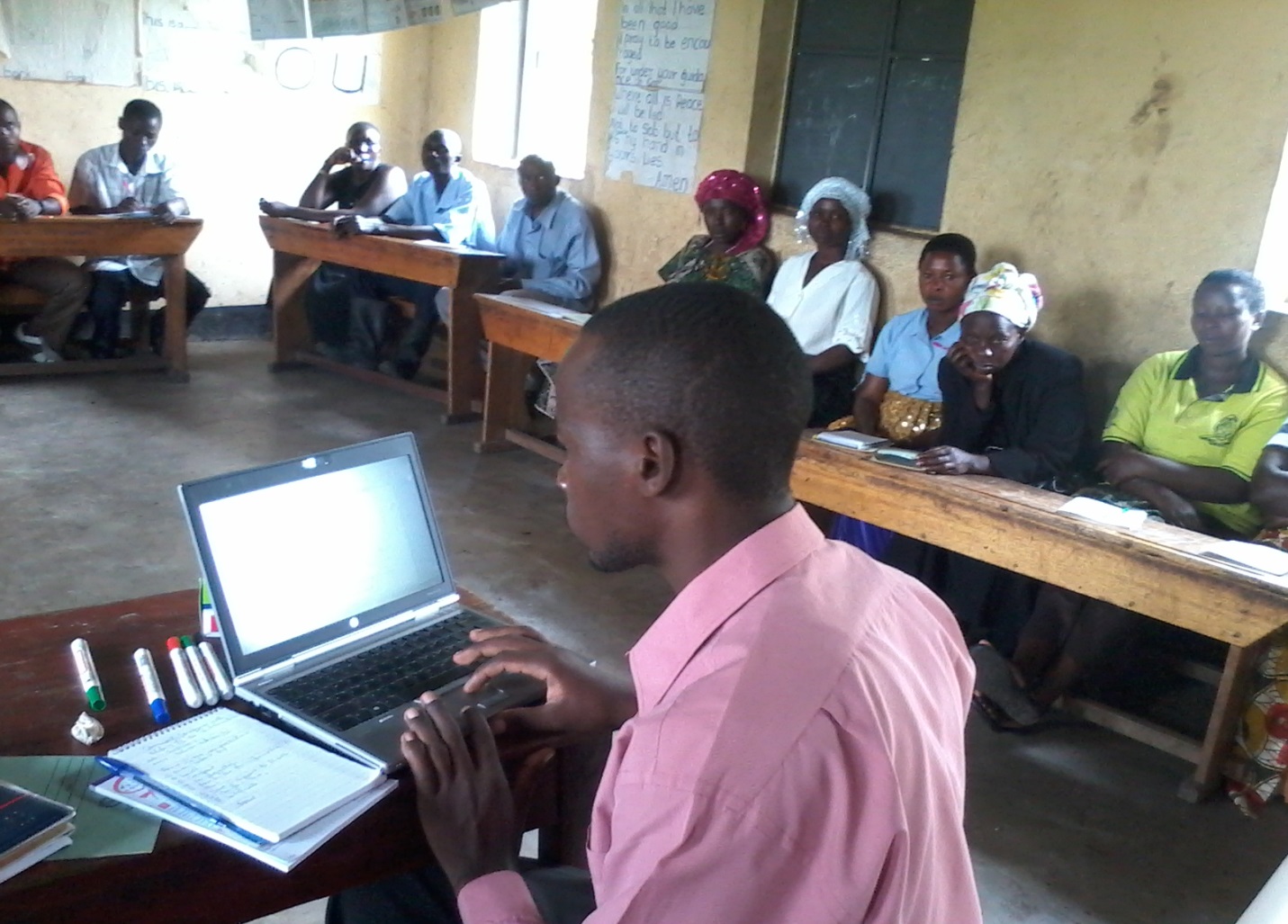
Global Health Corps is a leadership and professional development fellowship program for emerging global health leaders. It works to improve the lives of people in communities by ensuring social justice and health equity for all. ACODEV-Uganda, my placement organization, works to improve the lives of people in the community, especially the hard to reach and underprevileged areas, through advocacy, human rights, leadership development and management, and reproductive and child health.
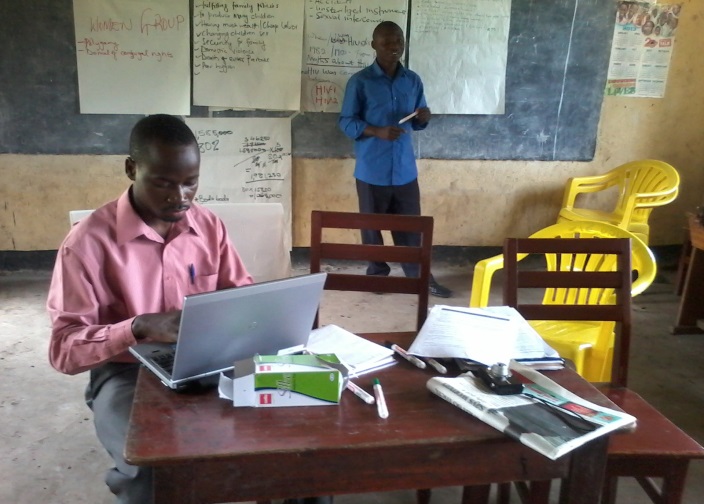
As a candidate of change with a heart to love and serve the people in my community through advocacy and project implementation, my dream has come true. When I was growing up, many children in my Ugandan village were malnourished despite the fact that their homes were one of the chief growers of food crops such as beans, peas, matooke, cassava, and maize; not only in the central region, but of the country. This area is not only a grower of food crops, but is also centrally located in Uganda near Lake Victoria where fish, an excellent source of protein, can easily be obtained. This sparked a question in my mind after I had studied biology and understood the dynamics, causes, and management of malnutrion. Why would the community fail to use the locally prepared food to manage their malnutrition? This motivated me to pursue a Bachelor’s Degree in nursing which I believed would give me a platform to address the malnutrion challenges within the communities of Uganda, and Africa as a whole. I have seen this come to pass with a number of projects in malnutrion I have led in Mbarara Regional Referral Hospital, Kayunga District Hospital, and Tente Village Central Region. Through these experiences, I was inspired to continue to work towards improving lives for women and girls.
But there were other issues in the communities I worked in that I began to notice as well. Uganda experiences high maternal and youth mortality rate due to HIV/AIDS. This is often a result of lifestyle choices related to sexual and reproductive health and socioeconomic status. Typically a more vulnerable population due to cultural norms, females experience a higher rate of HIV/AIDS than males. Even worse, adolescent females are at additional risk due to early marriage practices. In this context, I became further motivated to work with vulnerable women and adolescents on issues related to sexual and reproductive health as well as maternal, neonatal and child health as a means to lift themselves out of poverty.
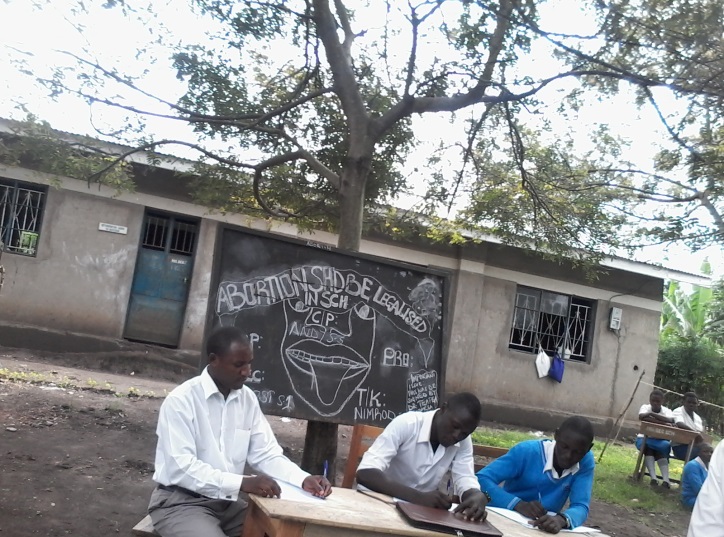
Through my GHC-fellowship work at ACODEV-Uganda and my goal to ensure social justice and make health services available to people, we have set up Kangaroo Mother Units in some of the Health Centers of Kasese district in order to help save lives of premature babies. In these units we address issues surrounding premature lives such as heat intolerance and nutrition. The maternal, neonatal, and child health team I lead also ensures that people in the community are sensitized about the causes of premature delivery, how to avoid the causes, and management of premature babies. At ACODEV-Uganda, we have continued to address the malnutrition of children in communities by working with the Community Health Volunteers, Health Centers and community leaders. We have sensitized people, assessed the malntrition cases, provided referral and follow-up of the identified chidren with malnutrition, and educated on how to use local food to prepare nutritious meals for children.
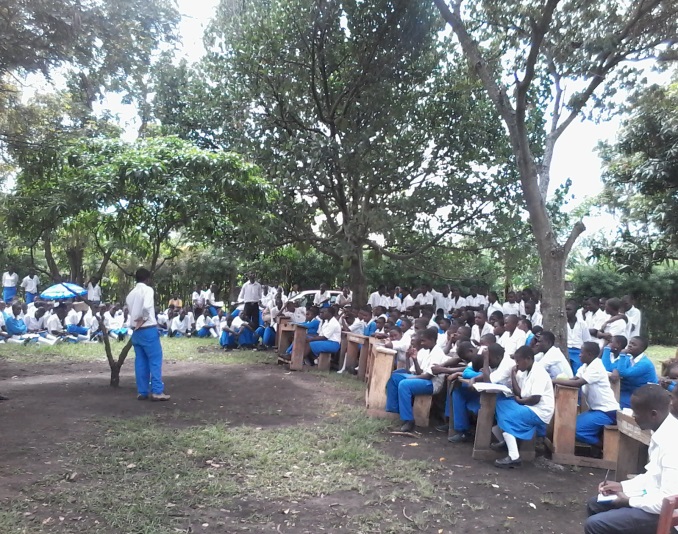
Addressing adolescent issues is interesting because it is so diverse. During my time with ACODEV-Uganda, we have completed surveys on what adolescents think of themselves and what they know about sexual and reproductive health, including contraceptives. We have conducted dialogues and debates about sexual and reprodcutive health in schools, involving the community leaders, health workers of the respective health centers near our partner schools, and community health volunteers. In some of the surveys and debates with adolescents, many were uneducated about their sexual and reprodcutive health. In an interview with some of the students about the use of contraceptives among the adolescents, the following was discovered: “I fear using contraceptive pills because they might make me barren when the time comes to have children and I hear that they cause cancer and death” (18 year old student from Hillside College). She further suggested that fluids from condoms cause cancer. Another female student expressed fears of having a condom get stuck in her vagina during intercourse as explanation for why she does not use them. Even another expressed a concern of producing lame children if she started using contraceptives, like pills. The above, among others, are some of the myths that have been identified among the adolescent population.
Having identified the above, we embarked on equipping health centers with adolescent-friendly corners, displaying educational materials and providing training to community health volunteers, youth focal persons, and health staff in health centers on leadership development and management when delivering adolescent friendly services.
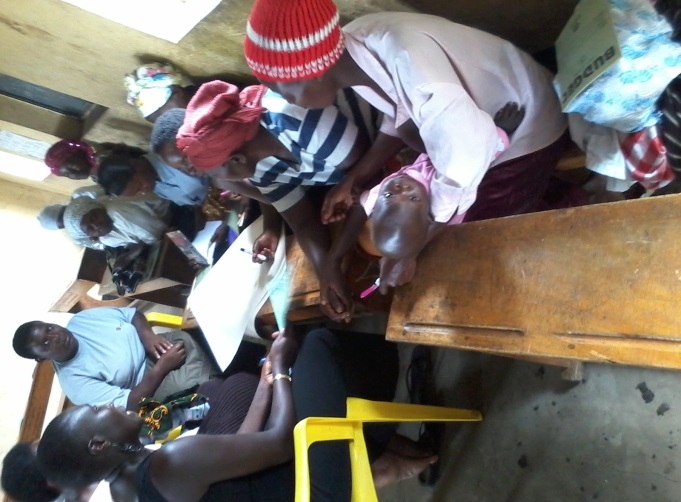
My dream coming to pass, Barbara a 16 year old student of Hillside College in Bwera Sub-county now urges that “the use of contraception prevents poverty and high rates of school dropouts due to unwanted pregnancies among the students.” Representatives from the Adolescent Club at her school highlighted some of the family planning methods that may be good for adolescents including condoms, pills, implants, and injections. Other students from Bwera Secondary School, Geofrey and Annet aged 15 and 17 respectively, also emphasized that early marriage does not only result in school dropout and early pregnancies, but the birth process may cause rectal-vaginal fistulas in adolescent mothers because of the undeveloped pelvic organs.
In review of the above, I think that working with GHC and ACODEV-Uganda for the remaining 7 months of my fellowship will result in a lot of change for the benefit of adolescents, mothers and children.
